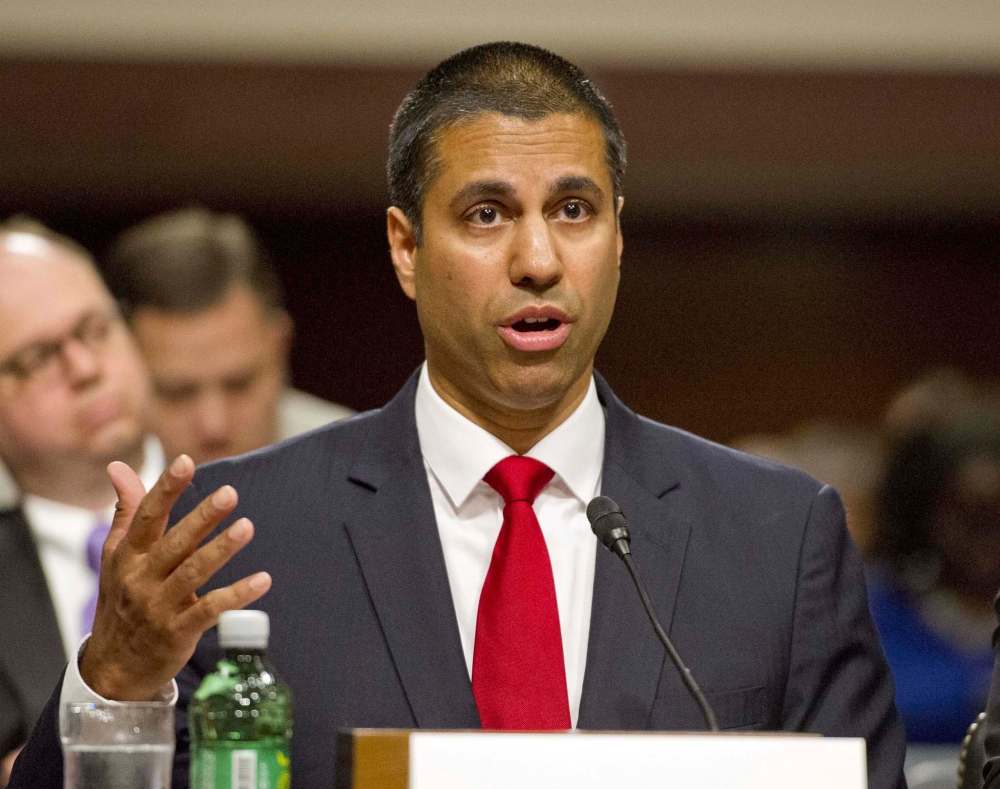Canada must enact net-neutrality law
Advertisement
Read this article for free:
or
Already have an account? Log in here »
To continue reading, please subscribe:
Monthly Digital Subscription
$1 per week for 24 weeks*
- Enjoy unlimited reading on winnipegfreepress.com
- Read the E-Edition, our digital replica newspaper
- Access News Break, our award-winning app
- Play interactive puzzles
*Billed as $4.00 plus GST every four weeks. After 24 weeks, price increases to the regular rate of $19.95 plus GST every four weeks. Offer available to new and qualified returning subscribers only. Cancel any time.
Monthly Digital Subscription
$4.99/week*
- Enjoy unlimited reading on winnipegfreepress.com
- Read the E-Edition, our digital replica newspaper
- Access News Break, our award-winning app
- Play interactive puzzles
*Billed as $19.95 plus GST every four weeks. Cancel any time.
To continue reading, please subscribe:
Add Free Press access to your Brandon Sun subscription for only an additional
$1 for the first 4 weeks*
*Your next subscription payment will increase by $1.00 and you will be charged $16.99 plus GST for four weeks. After four weeks, your payment will increase to $23.99 plus GST every four weeks.
Read unlimited articles for free today:
or
Already have an account? Log in here »
Hey there, time traveller!
This article was published 27/11/2017 (3017 days ago), so information in it may no longer be current.
You can now add internet neutrality to the growing list of stark differences of opinion between the governments of Canada and the United States.
Last week, the U.S. Federal Communications Commission announced it plans to repeal net-neutrality regulations enacted in 2015 during the Obama presidency, opening up a new era of competition among internet service providers and raising the prospect that Americans’ access to the world wide web will be significantly altered. The FCC’s announcement is widely seen as the latest in a series of pro-business policy changes that have become prevalent during the Trump administration.
Net neutrality is the principle by which governments ensure that no individual corporate entity can limit access to any content based on commercial imperatives.

In other words, it ensures that everyone gets access to the same websites and content in the same way, and prevents big companies from limiting what we see or do on the net unless we pay them more.
Although Canada is one of the world’s foremost proponents of net neutrality, it is not a universally accepted regulatory principle; some countries around the world, particularly in Europe, do not have rules in place to ensure equal access for consumers. As a result, ISP pricing is similar to cable television: if you want access to everything the web has to offer, you have to pay more.
In this country, the federal government has been unambiguous in its support for net neutrality. Earlier this fall, Heritage Minister Mélanie Joly stated bluntly that the internet must remain “an open space without barriers.” Further, she said her government continues to “stand by the principle of net neutrality.”
If Canada continues to support the notion of net neutrality, why should Canadians worry that the U.S. is threatening to go in another direction? Lamentably, as is the case with so many other areas of trade and commerce, a gross majority of Canadian internet traffic spends some time rebounding through U.S. channels. There are significant concerns that Canadian consumers may find their access to certain sites and content hampered because it is being refracted through non-neutral channels.
The FCC’s plans are not, however, a fait accompli. Even the suggestion of abandoning net neutrality has pitted the largest internet service providers (companies such as Comcast, Verizon and AT&T) against the world’s biggest digital companies (Google, Netflix and Twitter). The former dismiss concerns that the end of net neutrality would significantly alter access; the latter point out that they would never have been able to become what they are today if ISPs had implemented a variable cost structure on access to their services.
Canada could, and should, make it abundantly clear to the U.S. that it does not support an abandonment of net neutrality. Beyond that, it’s time Canada enshrined its support for net neutrality in law.
Net-neutrality advocates in this country have asked Ottawa to create legislation to formalize decisions made by the Canadian Radio-television and Telecommunications Commission in support of a free and open internet.
In and of itself, this will not influence the FCC process.
However, there is no better way for this country to show others, including the U.S., where we stand on an issue of such critical importance than a strong vote in our federal legislature.

